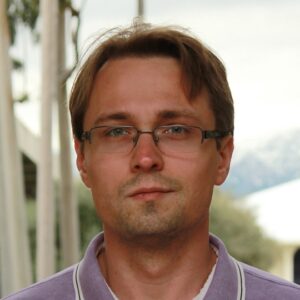Opening for a Postdoctoral Research Fellow to join the Gibson Lab https://gibsonlab.io at Harvard Medical School and Brigham and Women’s Hospital. We leverage tools from machine learning and control theory to understand biological systems. Control theoretic concepts are integrated both in the design of our optimization schemes and statistical machine learning models, as well as in the design of our in vitro and in vivo experiments. Our main area of focus is the microbiome and microbial dynamics more specifically. Applications include the design of bacteriotherapies (bugs-as-drugs), developing methods to learn microbial dynamics at ecosystem-scale, studying the impact of phages on microbial communities, methods for tracking low abundance pathogens, and methods for integrating multiple data modalities and prior knowledge (from other studies or databases) in time-series models. We focus on Bayesian methods that propagate measurement uncertainty throughout the model so that we can access confidence in model parameters and to help prioritize follow-up experiments. ML techniques applied include variational inference, Bayesian non-parametric models, and relaxation techniques (for making discrete models differentiable).
The specific project(s) you will be working on will fall under one of the following grants. Follow the links below for more details:
The candidate will also be encouraged to design their own experiments as well, which would then be carried out by staff in the germ-free mouse facility or in a collaborating wet lab. In addition to addressing our biological questions we also include key experimental components that can aid in validating our methods that would otherwise not be included in a purely hypothesis driven experiment. For a candidate wanting some wet lab experience we are looking to develop new single-molecule enzyme-linked immunosorbent assays (digital ELISA) to measure low abundance host inflammatory markers in feces (please mention this explicitly in your cover letter if interested).
Qualifications
- PhD in computer science, applied mathematics, ecology, computational biology, systems biology, statistics, or other quantitative discipline
- Excellent publication track record
- Strong mathematical background with track record developing novel models and methods
- Solid programming skills in Python; this isn’t a software engineering job, but you will need to be able to develop efficient implementations and apply your work to real biomedical data
- Ability to reside in the U.S. and legally work in the country.
About the lab environment
The Gibson Lab is located in the Division of Computational Pathology at Brigham and Women’s Hospital (BWH), a Harvard Medical School teaching hospital, which is the second largest non-university recipient of NIH research funding. The broad mandate of the Division of Computational Pathology is to develop and apply advanced computational methods for furthering the understanding, diagnosis, and treatment of human diseases. The Division is situated within the BWH Department of Pathology, which houses over 40+ established investigators, 50+ postdoctoral research fellows, and 100+ research support staff. In addition, BWH is part of the greater Longwood Medical Area in Boston, a rich, stimulating environment conducive to intellectual development and research collaborations, which includes the Harvard Medical School quad, Harvard School of Public Health, Boston Children’s Hospital, and the Dana Farber Cancer Institute. Many of our lab members also have appointments at the Massachusetts Institute of Technology and the Broad Institute.
Applications Process
Submit: (1) brief research statement (not to exceed 2 pages); (2) curriculum vitae; (3) two most relevant publications; (4) names and contact information of three individuals who can serve as references to: Travis Gibson, tegibson@bwh.harvard.edu. If you wish to chat briefly over Zoom before submitting materials to learn more details about our ongoing work, please inquire about this possibility.
We are an equal opportunity employer and all qualified applicants will receive consideration for employment without regard to race, color, religion, sex, national origin, disability status, protected veteran status, gender identity, sexual orientation, pregnancy and pregnancy-related conditions or any other characteristic protected by law.

